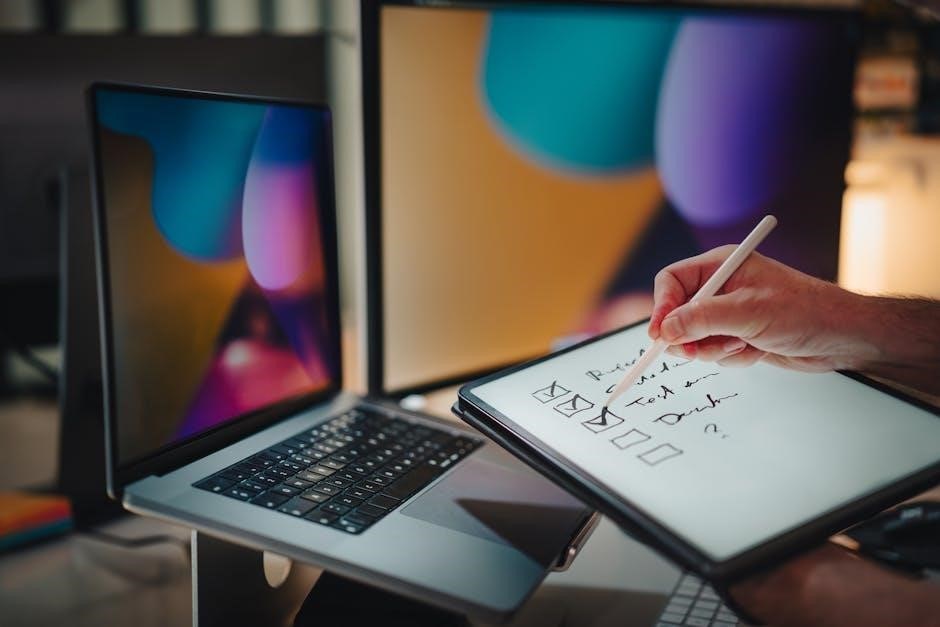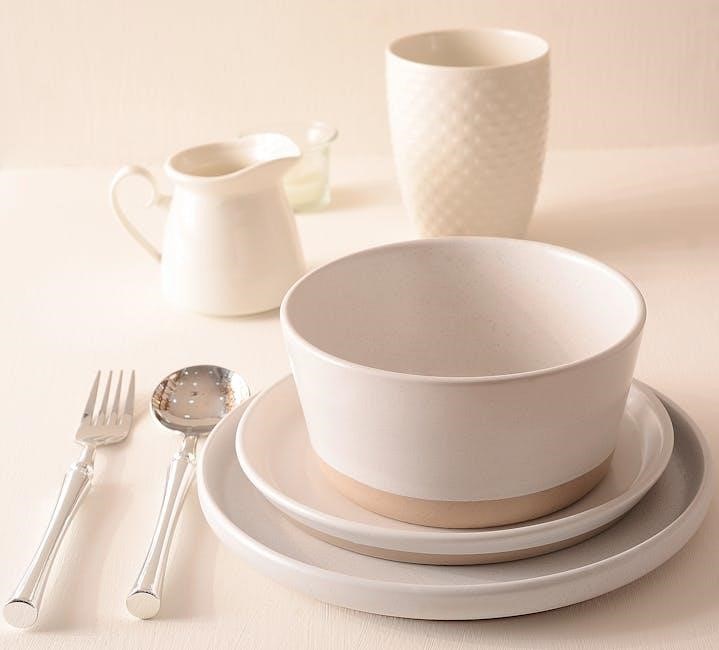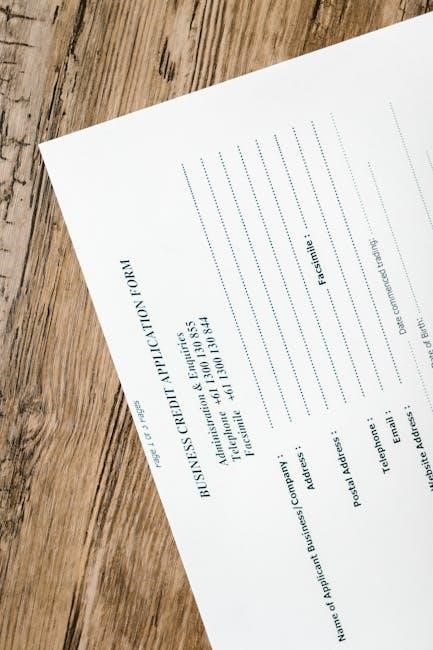new jersey marriage license application form
Summary
NJ marriage license application form got you stressed? Don’t sweat it! Get hitched quicker with our simple guide. Your happily ever after starts here! ✨

Planning a wedding in New Jersey? Obtaining a marriage license is a crucial first step. To get started‚ you’ll need to complete the marriage license application form. This form can be obtained from the Local Registrar’s office or downloaded online. Remember not to sign until in front of the Local Registrar.
Where to Apply for a Marriage License in New Jersey
In New Jersey‚ the location where you apply for your marriage license depends on your residency. If either you or your partner resides in New Jersey‚ you must apply for the license in the municipality where either of you lives. This means you’ll need to visit the Local Registrar’s office in that specific town or city.
However‚ if neither of you are residents of New Jersey‚ the application process is slightly different. In this case‚ you should apply for the marriage license in the municipality where the marriage ceremony will be performed. It’s important to note that if you are non-residents‚ the marriage license will only be valid within that specific municipality.
With 543 municipalities in New Jersey‚ it’s crucial to identify the correct Local Registrar’s office based on your residency or the location of your ceremony. Contacting the Local Registrar beforehand is advisable to determine if applications are handled during regular business hours or by appointment. Some offices may require appointments due to application volume.
Remember to verify the Registrar’s hours‚ which often fall between 8:30 a.m. and noon‚ and then from 1:00 p.m. to 4:00 p.m. Considering potential closures for holidays and weekends is also essential for planning your visit.
Residency Requirements for Application
New Jersey’s residency requirements significantly impact where you can apply for a marriage license. If one or both applicants are residents of the state‚ the application must be made in the municipality where either applicant resides; This ensures that the license is valid throughout the entire state of New Jersey‚ offering flexibility in choosing your wedding venue.
To fulfill the residency requirement‚ one applicant must provide proof of residency within the municipality where they are applying. Acceptable forms of proof typically include a driver’s license‚ a utility bill‚ or any official document displaying your current address. It’s crucial to have this documentation readily available when you visit the Local Registrar’s office.
However‚ if neither applicant is a resident of New Jersey‚ the rules change. In this scenario‚ the application must be submitted in the municipality where the marriage ceremony will take place. The key difference here is that the license is only valid within that specific municipality‚ limiting your venue options to that location.
Understanding these residency requirements is essential to avoid delays or complications in obtaining your marriage license. Contacting the Local Registrar’s office in advance to confirm their specific requirements and accepted forms of proof is always a good idea.
Non-Resident Application Process
For couples where neither applicant is a resident of New Jersey‚ the marriage license application process differs slightly. Unlike resident applicants who can apply in the municipality where either resides‚ non-residents must apply in the specific municipality where the wedding ceremony will be performed. This is a critical distinction to remember when planning your New Jersey wedding.
The most important factor for non-residents to understand is that the marriage license obtained in this manner is only valid within the issuing municipality. This means that the wedding ceremony must take place within the boundaries of the town or city where the license was obtained. If you plan to have your ceremony in a different location‚ you’ll need to apply for a license in that municipality instead.
To ensure a smooth application process‚ non-resident applicants should contact the Local Registrar’s office in the municipality where they intend to marry. This allows you to confirm their specific procedures‚ required documentation‚ and appointment availability. It’s also advisable to inquire about any specific requirements or restrictions that may apply to non-residents.
Gathering all necessary documents‚ such as proof of identity‚ social security numbers (if applicable)‚ and any required divorce decrees‚ is essential before visiting the Registrar’s office. Being well-prepared will help expedite the application and ensure that you can obtain your marriage license without any unnecessary delays.
Required Documents for Application
When applying for a marriage license in New Jersey‚ it’s crucial to have all the necessary documents readily available to ensure a smooth and efficient process. The specific documents required may vary slightly depending on your residency status and individual circumstances‚ but some core documents are universally required.
Firstly‚ both applicants must provide proof of identity. Acceptable forms of identification include a valid driver’s license‚ passport‚ or state/federal-issued identification card. These documents must be current and unexpired to be considered valid.
Secondly‚ applicants must provide their social security numbers‚ if applicable. For U.S. citizens‚ providing a social security number is mandatory and will be kept confidential. If you don’t have a social security card‚ you must still provide the number‚ and it is required by law.
Thirdly‚ if either applicant has been previously married‚ divorced‚ or had a civil union dissolved‚ they must provide the original divorce decree(s) or civil annulment documents. These documents are necessary to verify that all previous marriages or civil unions have been legally terminated.
If a former spouse or civil union partner is deceased‚ applicants must present a death certificate. This document serves as proof of the termination of the previous marriage or civil union.
Finally‚ while not mandatory‚ it’s helpful to bring a copy of your birth certificate. This can assist in verifying your parents’ names and related birth information‚ which may be required on the application form.
Proof of Identity Accepted
When applying for a marriage license in New Jersey‚ establishing your identity is a primary requirement. The Local Registrar needs to verify that you are who you claim to be. Therefore‚ you must present acceptable forms of identification during the application process. Several documents are generally accepted as proof of identity.
One of the most common and widely accepted forms of identification is a valid driver’s license. The license must be current‚ unexpired‚ and issued by a state or territory of the United States. Make sure the photo and information on the license are clear and legible.
A valid passport is also an excellent form of identification‚ especially for individuals who may not possess a U.S. driver’s license. Both U.S. passports and foreign passports are typically accepted‚ provided they are unexpired and valid.
Another acceptable form of identification is a state-issued or federal-issued identification card. These cards are often used by individuals who do not drive but still need a government-issued photo ID. The ID card must be current and issued by a recognized government entity.
In all cases‚ the identification document must include your photograph‚ full legal name‚ date of birth‚ and signature (if applicable). The information on the identification document must match the information you provide on the marriage license application form.
It’s always a good idea to contact the Local Registrar in your municipality to confirm which specific documents they accept as proof of identity‚ as requirements can sometimes vary slightly.
Social Security Number Requirement
Providing your Social Security Number (SSN) is a mandatory part of the New Jersey marriage license application process for U.S. citizens. It is crucial to understand why this information is required and how it is handled.

The requirement to provide your SSN stems from federal and state laws aimed at ensuring accurate record-keeping and preventing fraud. The SSN helps to uniquely identify individuals and assists in verifying information provided on the application.
When completing the marriage license application‚ you will be asked to provide your Social Security Number. It is essential to provide the correct number to avoid delays or potential issues with your application. You will be required to provide your social security card or social security number.
It is important to note that while your SSN is required‚ it is kept confidential and is not publicly accessible. The information is used solely for administrative purposes by government agencies.
If you are a U.S. citizen and do not have a Social Security Number‚ you will need to obtain one from the Social Security Administration before applying for a marriage license.
Non-U.S. citizens may have different requirements regarding the provision of a Social Security Number. It is advisable to check with the Local Registrar or consult legal counsel to determine the specific requirements that apply to your situation.
Providing accurate information‚ including your Social Security Number‚ is crucial for a smooth and successful marriage license application process in New Jersey.

The Marriage License Fee
Securing your marriage license in New Jersey involves a fee. Understanding the fee amount and payment methods is essential for a smooth application process. The New Jersey marriage license fee is $28. This fee is mandated by the state and is consistent across all municipalities.
The $28 fee must be paid at the time of application. This means you’ll need to be prepared to submit payment when you visit the Local Registrar’s office to file your application. This fee covers the cost of processing your application‚ issuing the license‚ and maintaining marriage records.
It’s essential to confirm the accepted methods of payment with the Local Registrar’s office in the municipality where you are applying. Payment methods can vary.
Keep in mind that the marriage license fee is non-refundable‚ even if you decide not to proceed with the marriage after applying. If the license expires before being used‚ a new application must be made and another $28 fee remitted.
Planning your budget accordingly and ensuring you have the necessary funds available at the time of application will help streamline the process and prevent any unnecessary delays.
Remember to contact the Local Registrar’s office to verify the current fee amount and accepted payment methods before your visit.
Waiting Period Before License Issuance
After submitting your marriage license application in New Jersey‚ be aware that there is a mandatory waiting period before the license is actually issued. This waiting period is in place to ensure that applicants have sufficient time to consider their decision.

In New Jersey‚ the standard waiting period is 72 hours‚ or three days. This waiting period begins the moment your application is officially filed with the Local Registrar. It’s important to note that the waiting period is calculated from the exact time of application‚ not just the date.
Weekends and holidays can affect the actual date of issuance. If you apply on a Friday‚ the license will not be issued until Tuesday. Plan your application submission accordingly to avoid delays in your wedding plans.
There is an exception to the 72-hour waiting period for individuals who are registering a remarriage with proof of their existing marriage. In these cases‚ the waiting period is waived‚ and the license can be issued immediately upon application.
Contact the Local Registrar to determine if license applications are handled during business hours or by appointment.
Understanding and accounting for the waiting period is crucial to avoid any last-minute surprises or rescheduling of your ceremony. Plan and submit your application well in advance to ensure your license is ready in time for your wedding day.
License Validity Period
Once your New Jersey marriage license is issued‚ it’s essential to understand its validity period. The marriage license is not valid indefinitely; it has a specific timeframe during which the marriage ceremony must be performed.
In New Jersey‚ a marriage license is valid for six months from the date it is accepted‚ unless the Registrar has given prior approval to extend the validity of the application to a maximum of one year. This means you must have your marriage ceremony within six months of the license issuance date.
If the license expires before the marriage ceremony takes place‚ the couple must apply for a new license and pay the application fee again. No exceptions are made for expired licenses.

Carefully consider your wedding date when applying for the license to ensure that the ceremony falls within the validity period. Applying too early could result in the license expiring before your wedding day.
The expiration date is clearly indicated on the marriage license itself. Double-check this date upon receiving the license to avoid any potential issues.
If unforeseen circumstances arise and you need more time‚ it’s best to contact the Local Registrar who issued the license to ask if they will grant you an extension.
Remarriage Application Process
For couples already legally married‚ whether in New Jersey or another state or country‚ New Jersey offers a process to reaffirm their vows through a remarriage application. This isn’t a new marriage‚ but a formal recognition and celebration of an existing union.
The remarriage application process largely mirrors the standard marriage license application. You must complete the same application form‚ providing accurate information about both parties.
A critical requirement is providing proof of your existing marriage. This typically involves submitting a certified copy of your marriage certificate. Without this document‚ the remarriage application cannot proceed;
Both individuals must meet the standard requirements for entering a marriage in New Jersey‚ such as being of legal age and not currently married to someone else.
The application is filed in the New Jersey municipality where either party resides. If neither party is a resident‚ the application is filed in the municipality where the reaffirmation ceremony will take place.
Unlike a standard marriage license‚ there is no 72-hour waiting period for a remarriage license. Once the application is filed and the marriage is verified‚ the license can be issued immediately.
The remarriage license is valid for the same duration as a standard marriage license‚ so plan your reaffirmation ceremony accordingly. Remember to pay the required fee.
Who Can Perform Marriages in New Jersey?
In New Jersey‚ the authority to solemnize marriages is granted to a diverse group of individuals‚ ensuring couples have various options for officiating their ceremony. This includes judges from various court levels‚ such as the United States Court of Appeals for the Third Circuit‚ federal district courts‚ and municipal courts.
Judges of the Superior Court and Tax Court‚ including retired judges who resigned in good standing‚ are also authorized. Furthermore‚ county surrogates‚ county clerks‚ and mayors (or deputy mayors authorized by the mayor) hold the power to perform marriages.
Clergy members of all religions are granted the authority to solemnize marriages‚ recognizing the importance of religious ceremonies for many couples. Religious societies‚ institutions‚ and organizations can also join couples in marriage according to their specific rules and customs.
Interestingly‚ chairpersons of township committees and village presidents are also included in the list of authorized officiants.
The question of whether Internet ministers can perform marriage ceremonies in New Jersey often arises. The state generally accepts this practice‚ but it’s advisable to verify the credentials and authorization of the specific Internet ministry to ensure compliance with legal requirements.
This broad range of authorized individuals aims to accommodate the diverse needs and preferences of couples seeking to marry in New Jersey‚ allowing them to choose an officiant who aligns with their values and beliefs.
Accessing the Application Form
Obtaining the New Jersey marriage license application form is a straightforward process with multiple avenues available to prospective couples. One convenient method is to download the application form directly from the official website of the New Jersey Department of Health or the website of a specific municipality’s Local Registrar office.
Many municipalities also provide the application form in both English and Spanish‚ catering to the diverse population of the state. This online accessibility allows couples to begin the application process from the comfort of their homes‚ reviewing the required information and preparing the necessary documents.
Alternatively‚ couples can obtain a physical copy of the marriage license application form by visiting the Local Registrar’s office in the municipality where they intend to apply. This is particularly useful for those who prefer a tangible document or wish to speak directly with a registrar for guidance.
It’s important to note that while completing the application form beforehand can save time‚ couples should refrain from signing it until they are in the presence of the Local Registrar‚ as the signature must be made under oath.
By offering both online and in-person options for accessing the marriage license application form‚ New Jersey aims to make the process as accessible and convenient as possible for all couples planning to tie the knot.